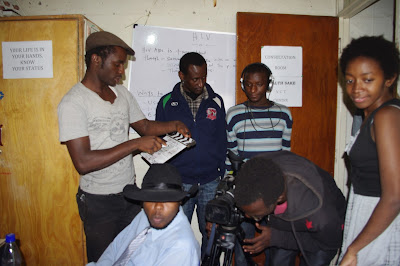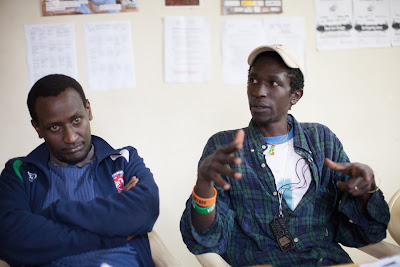Story by Kaggai Wambui
When one hears about Copyright what goes through their minds? Firstly Copyright is one form of Intellectual Property (IP). IP is an area of law that protects and promotes the creations of mind. The other form of an IP is Industrial Property, which entails protection of trademarks, service marks, utility models, patents even industrial designs. Copyright on the other hand relates to literary, artistic and musical works.
So what is Copyright? It refers to an exclusive bundle of rights granted by law to creators. Creators can be authors of literary works, producers of audio-visuals works and films, architects, performers, broadcasters and even photographers.
The importance of Copyright protection to the creators is to balance the interests of the public and those of the creators. It is important to keep the creators motivated so that they may continue to promote their creativity activity for cultural, social and industrial progress for themselves and the state as well.
Copyright protects the expression of an idea from being copied without authority; it does not however protect the concept or idea.
The first owner of a Copyright work is its Creator, for example Musical works- Producer, Photographs- Photographers and Cinematographic work- Producer. Copyright protection offers a Rights owner with the following;
Economic Rights, the rights to;
Reproduce in any material form
Distribute to the public by way of sale, rent, lease, and hire loan.
Perform the work in public.
2. Moral Rights. This entitles the author to claim authorship of the work and object
to distortion or mutilation prejudicial to his honors or reputation.
3. Related Rights. The Rights of producers of sound recordings.
Broadcasters’ Rights and Performers Rights.
The Copyright protection in majority instances lasts for the life of the creator plus 50years. If the creator is unknown the period of protection is 50 years from date published. Audio-visual works, photographs, sound recordings and broadcasters are protected 50 years from the date of publication.
The KENYA COPYRIGHT BOARD (KECOBO) is a state corporation established under section 3 of the Copyright Act CAP 130 of the laws of Kenya its mandate is to administer and enforce Copyright and related rights in Kenya.
Located in NHIF Building in Nairobi, Kenya authors of varies works can get their publications copyrighted for as low as 1000 shillings per work.
When going to register one requires the following
2 original copies of the work. The work must be in tangible form including digital form for example CD, books etc.
The work must be of original authorship it must not be copied.
A dully-completed form duly filled, signed and commissioned.
Once the registration takes place the process takes about 7 working days.
To support the great youth of the Kibera Film School, please visit our Global Giving Page




























